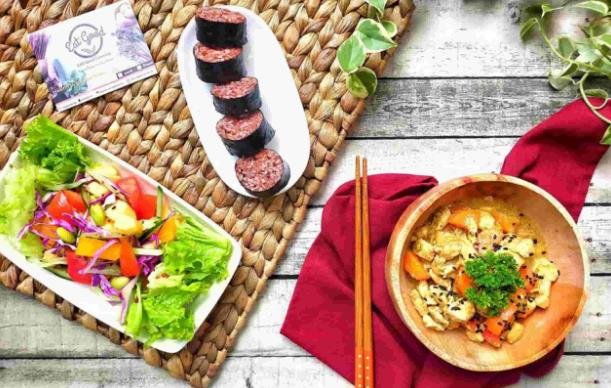The Japanese diet is known for its health benefits, such as longevity, low obesity rates, and reduced risk of chronic diseases. But did you know that it can also help you cope with stress and lose weight? Here are some of the principles of the Japanese diet that can transform your body and mind.
Eat in moderation
One of the first things that people who visit Japan will notice is how small the portions are. When you go out to eat in Japan, you will probably be able to finish your food in one sitting. In contrast, in many other countries, you may need to ask for a takeout box.

These moderate portions are one of the key reasons why people in Japan can eat whatever they want without gaining weight. They also help them avoid overeating, which can cause stress and digestive problems.
To practice moderation, you can use smaller plates and bowls, serve yourself less food, and stop eating when you are 80% full. This way, you can enjoy your food without feeling guilty or stuffed.
Eat a variety of foods
When you go to a Japanese restaurant in Japan, you will often see a meal composed of rice, miso soup, a protein dish, and a few vegetable side dishes. This is called ichiju-sansai, which means “one soup and three dishes”. It is a balanced way of eating that provides different nutrients and flavors.
Eating a variety of foods can help you get all the vitamins, minerals, antioxidants, and fiber that your body needs. It can also prevent boredom and cravings, which can lead to emotional eating and weight gain.
To eat a variety of foods, you can try different cuisines, use seasonal ingredients, and experiment with new recipes. You can also follow the Japanese practice of hara hachi bu, which means “eat until eight parts out of ten full”. This will leave some room in your stomach for dessert or snacks later.
Eat simply
The Japanese diet is based on simple ingredients that are minimally processed and seasoned. For example, rice is a staple food that is cooked with water and salt. Vegetables are often steamed, boiled, or pickled. Fish and meat are grilled, baked, or simmered in broth. Soy sauce, miso paste, vinegar, and ginger are some of the common condiments that add flavor and depth.
Eating simply can help you avoid excess sugar, fat, and additives that can harm your health and weight. It can also help you appreciate the natural taste and texture of food, which can enhance your enjoyment and satisfaction.
To eat simply, you can choose whole foods over processed foods, use fresh herbs and spices over sauces and dressings, and cook your own meals over ordering takeout or eating out.
Eat with self-compassion
The Japanese diet is not about strict rules or deprivation. It is about finding a balance between indulgence and restraint. The Japanese people enjoy their food without guilt or shame. They also respect their bodies and listen to their hunger and fullness cues.
Eating with self-compassion can help you avoid stress and anxiety that can trigger binge eating and weight gain. It can also help you develop a healthy relationship with food and yourself.
To eat with self-compassion, you can treat yourself with kindness and forgiveness when you make mistakes or slip-ups. You can also avoid comparing yourself with others or following unrealistic standards of beauty. Instead, you can focus on your own goals and progress.
The Japanese diet is more than just a way of eating. It is a way of living that can help you cope with stress and lose weight. By following these principles, you can improve your physical and mental well-being.
